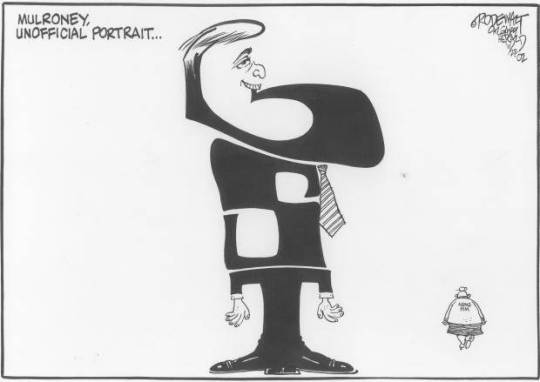#canada taxfiling accounting
Text

We at Headwork are CPA & Accountant Services Firm in USA. We at Headwork provide Accounting Service Provider. The Most Experienced and Reliable Accounting Service Provider for Private, Trucking Industry and Commercial use. We'll be happy to connect with you when you need any of our services. So regarding any of our services you can directly contact us.
Our Services in USA, #canada #australia :
👉 Accounting Services
👉 Account Billing Service
👉 Bookkeeping Services
👉 Account Receivable
👉 Account Payable
👉 Trucking Filing Service
👉 Compliance, Billing & Filings
👉 Reconciliation
👉 Budgeting & Forcasting
👉 Payroll
👉 MIS/Financial Statements Preparation
Contact us :
📞 +1-2062572134
🌐 https://theheadwork.com
Email ID : [email protected]
#payroll#payrollservices#taxfiling#accountpayable#accounting#usa#washington#canada#bookkeeping#australia#accountingservices
1 note
·
View note
Link
Need a hand in tax filing and accounting? C-note Tax Solutions Inc. makes it easy for you!
0 notes
Text

Save money on Capital Gains Tax. See our article below on how you can make the most of your return.
https://accufile.ca/capital-gains-tax-canada/
#taxtips #taxes #accufile #business #corporate #businesstax #cpa #create #makemoneyonline #value #accounting #cra #taxfiling #capitalgain #tax
0 notes
Photo

As #tax day approaches, we have some grave and bone-chilling news for you #Canada: Almost nobody else in the developed world has this much trouble filing their #taxes.
Australia, New Zealand, the United Kingdom, Japan, Sweden and as many as 30 others live under “no return” income tax systems.
Indeed, when a Brit or a Kiwi moves to Canada, one of the biggest culture shocks is that our tax filing system is so needlessly terrifying.
The standard “no return” system works thusly: Employers withhold income tax throughout the year and every 12 months revenue authorities automatically add up an individual’s eligible deductions and calculate their tax burden.
The process of filing taxes essentially involves nothing more than looking over a government-prepared invoice.
If the taxpayer has unique circumstances — such as self-employment income or a unique deduction — only then do they have to file a return. But for most taxpayers, the system is so easy that they may actually start to forget when tax day is.
In the U.K., the system is given the pithy title of Pay As You Earn (PAYE). Some years, the PAYE system has indeed meant that as many as 90 per cent of British taxpayers have not needed to file a return.
What’s more, PAYE wasn’t some futuristic scheme cooked up by modernist Blair-ite reformers. It was designed and implemented when German bombs were still raining on the country.
The invasion-threatened U.K. was expanding the income tax pool to fund the war effort, and were worried about a flood of inexperienced tax filers suddenly deluging revenue authorities with indecipherable returns.
Sweden, meanwhile, brags about their version of Pay As You Earn on their official English-language “move to Sweden” webpage. “For many in Sweden, submitting the income tax return only involves a couple of smartphone taps,” it reads.
But Canada is still in the business of forcing its taxpayers to give the government an annual update of how many children and spouses they have — and then scroll through an ever-expanding list of possible deductions in a desperate attempt to pay as few taxes as possible.
This process is not cheap. Indeed, a whole industry of tax software and walk-in accountants are kept afloat by Canada’s hefty “tax compliance” burden.
The high-end estimate, prepared by the libertarian-minded Fraser Institute, is that filing tax returns costs Canadians $7 billion a year.
One of the main reasons we don’t notice how bad it is, is because our next door neighbour has an even worse system.
In a recent NPR profile on the byzantine U.S. income tax filing system, Stanford University tax law professor Joseph Bankman asked listeners to imagine if Visa acted like the U.S. Internal Revenue Service.
“Each month, you’d get a Visa bill, and it’d be a blank piece of paper. And you’d have to write down all of your purchases and add it up. And if you did it wrong, you’d face a penalty,” he said.
Canada is already tantalizingly close to a Pay As You Earn system. We already compel employers to withhold income taxes. And for most taxfilers, the Canada Revenue Agency does indeed already have much of their information on file.
In fact, if Canadians go through the trouble of opening a MyCRA account, it is indeed possible to download whatever documents are on file with the CRA, including T4s.
But as the long lines at H&R Block indicate, the utopia of a return-free system remains just out of reach.
For one, tax simplification would require the Canada Revenue Agency to vastly expand its information-gathering capabilities.
Marriage records, birth records, university attendance: Whole reams of information currently held with various provincial and federal agencies would need to be centralized with one of Canada’s most hated government institutions.
The process would be relatively easy (the CRA, after all, has no problem accessing these kinds of information in an audit), but it might have spooky ramifications.
Related
Here are 10 lesser-known tax tips to boost your return
Sold your home in 2016? You must report it on your taxes
In Sweden, for instance, baby names aren’t registered with a provincial government — they’re registered with tax authorities. What’s more, these authorities retain the ability to reject baby names they deem unfit.
Swedes love their tax agency, to be sure. But to Canadians, registering the birth of one’s offspring to a federal taxation authority might seem more akin to a dystopian Kurt Vonnegut novel.
Nevertheless, the main roadblock to Canadian income tax simplification is the fact that Canada is in love with tax deductions.
Here’s former prime minister Stephen Harper announcing a home renovation tax credit. Here’s current prime minister Justin Trudeau offering a tax credit to teachers. Here’s a major fitness club owner lobbying the federal government to give Canadians a tax credit for their gym memberships.
Canadians love the endorphin rush of qualifying for a new deduction and receiving a hefty return. Canadian politicians, in turn, love standing behind lecterns and informing a crowd of cheering supporters that henceforth they will all be paying fewer taxes than everyone else.
when that tax return hits your direct deposit pic.twitter.com/iu7wPBWezR
— Jodi Gilliland (@jodigillilannd) April 25, 2017
Meanwhile, this isn’t really done in the likes of Australia or Sweden. When you’re trying to keep the tax filing system as simple as possible, the last thing you want to do is tack on a bunch of clerically burdensome deductions.
Imagine if British Prime Minister Theresa May introduced a home renovation tax credit. Thousands of Brits who currently do not have to file tax returns would suddenly be placed in the unenviable position of having to collect receipts, do a bunch of math and slog their way through some technical government forms.
It would be the government equivalent of a mail-in rebate; a loathsome chore that would leave beneficiaries with the eerie feeling that they were somehow getting scammed.
Back in the 1990s, the United States briefly considered the virtues of a return-free system. A paper in the National Tax Journal at the time noted that one of the tradeoffs would be the need to take a scythe to the country’s lengthy list of politically popular deductions.
U.K.’s tax system featured “fewer rates, fewer deductions, fewer attempts to run social policy through the tax code,” it said.
The same concerns came up during a recent round of tax simplification in Australia. In a policy paper, Australian economist Sinclair Davidson warned that while taxpayers would save on filing costs under a “no returns” system, they could be hit by waves of new taxes unleashed by the abolition of deductions.
“Few taxpayers would want to give up their work-related deductions to save the cost of an accountant or tax agent,” he wrote.
The author also brought up another concern: Maybe it’s not a good idea to make tax systems too easy.
The term he used was “fiscal illusion” — the idea that when taxes are “out of sight and out of mind” citizens become much less vigilant about how the government is spending their money.
Nevertheless, whatever the virtues of tax simplification of Canada, it would be a major reform. And to those who doubt the perils of major tax reforms in Canada, just remember three words: general sales tax.
In the late 1980s, Prime Minister Brian Mulroney tried to tackle a simple problem that had been dogging the country for decades: The prices of Canadian goods were all being driven up by a hidden “manufacturers’ tax” — a clanky, outdated monstrosity that arbitrarily taxed some goods higher than others.
So — urged on by importers and manufacturers — Mulroney’s plan was to kill the manufacturers’ tax and replace it with a “general sales tax” to be applied to goods at the till.
It was efficient, transparent and, if you believe most economists, sales taxes are among the least disruptive types of taxation in the world.
But these arguments turned out to be moot points to a country suddenly enraged that every single grocery receipt now included an itemized cash grab from Ottawa.
(via np)
When Kim Brooks opened her notice of assessment from the Canada Revenue Agency, she was surprised to see a seemingly random factoid printed in bold letters at the top of the page.
"Only one out of 10 individuals who owe tax do not pay on time," said the document.
Brooks took keen interest because she's a professor of tax law at Dalhousie University in Halifax. She said that simple message from the CRA is a classic example of a psychological manipulation known as "nudging."
"They want you to feel like in order to be a good citizen, you should do what your neighbours are doing and pay your taxes on time. It's a different kind of approach to getting greater compliance," said Brooks.
In an emailed statement to CBC News, the CRA said similar strategies are being tried by tax authorities around the world.
"The CRA has started employing different interventions that attempt to overcome the behavioural barriers that keep people from following through with their intentions, sometimes referred to as nudges."
'If you needed an organ transplant, would you have one?'
The U.K. government is best known for using these kinds of subtle language adjustments. Set up in 2010, a group of academics called the Behavioral Insights Team began working with different British bureaucracies in areas such as health, transportation, child care and tax collection.
In one example, the team discovered it could increase the number of registered organ donors by nearly a 100,000 over a single year if it posed this question to potential donors: "If you needed an organ transplant, would you have one? If so please help others."
Pretty please?
The CRA has been experimenting with language in its correspondence with the public for years, said Jonathan Farrar, an associate professor at Ryerson University in Toronto who specializes in taxpayer decision-making.
He points to a series of focus groups the CRA held in five different Canadian cities in 2011. It wanted to know if people who owed money were more likely to pay up if assessment notices had a friendlier tone. Some people in the focus group got the standard letters and others got ones that used the word "please" when asking people to get in touch with the CRA.
Cheap and effective
"What they gleaned from the focus groups was that if they used language that was more respectful, that was more likely to encourage people to pay their taxes on time," said Farrar.
The research also found improvements when people's options were more clearly spelled out. For instance, response rates were higher when people who owed taxes were specifically told they could pay in instalments rather than all at once.
"And it's a very low-cost way to do it," said Farrar. "It's just simply adding words or phrases to a form, so it affects a whole lot of people in a very low-cost way."
Farrar said the federal government's Privy Council Office set up a new research office in 2015 , inspired by the Behavioural Insights Team in the U.K. It's called the Innovation Hub.
It lists getting more women in the military, better response rates for Statistics Canada surveys and better rates of student loan repayment as some of its objectives.
Tax deadline: 3 tips to make your life easier
(via cbc)
0 notes
Text

Headwork is one of the Best Outsourced Accounting, Bookkeeping and Payroll Services Provider in USA. The most experienced and Reliable Accounting, Bookkeeping & Payroll Service Provider for Private and Commercial use. We'll be happy to connect with you when you need any of our services. So regarding any of our services you can directly contact us.
Contact us :
📞 +1-2062572134
🌐 https://theheadwork.com/
Email ID : [email protected]
#outsourcedaccounting #payroll #payrollservices #taxfiling #accountpayable #accountingservices #usa #washington #canada #accounting #bookkeeping
#bookkeeping#outsourced accounting services#payroll#truckingbilling#taxpreparation#accounting#truckingindustry#washington
0 notes
Text

Important information due to COVID 19 | My service Canada | EI login and registration www.accufile.ca/my-service-canada-account-ei-login/
#taxtips #taxes #accufile #business #corporate #businesstax #cpa #create #makemoneyonline #value #accounting #cra #taxfiling #EILogin
0 notes
Text

Canada Child Benefits | Everything you need to know.
www.accufile.ca/canada-child-benefit/
#taxtips #taxes #accufile #business #corporate #businesstax #cpa #create #makemoneyonline #value #accounting #cra #taxfiling #childbenefit
0 notes